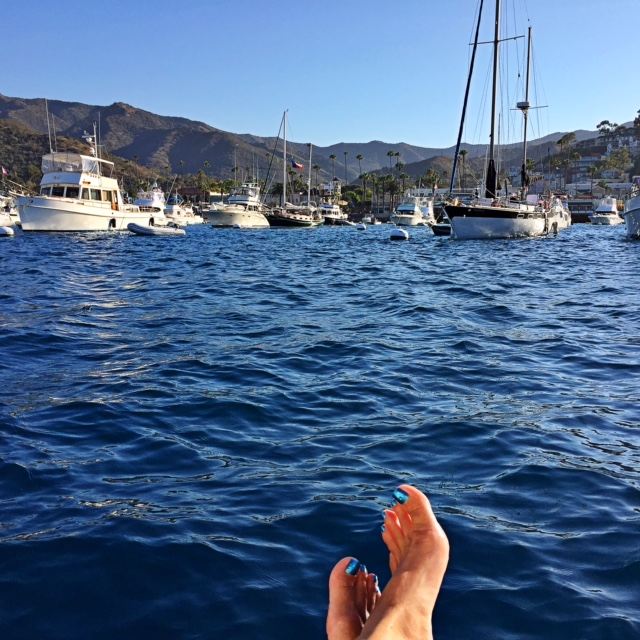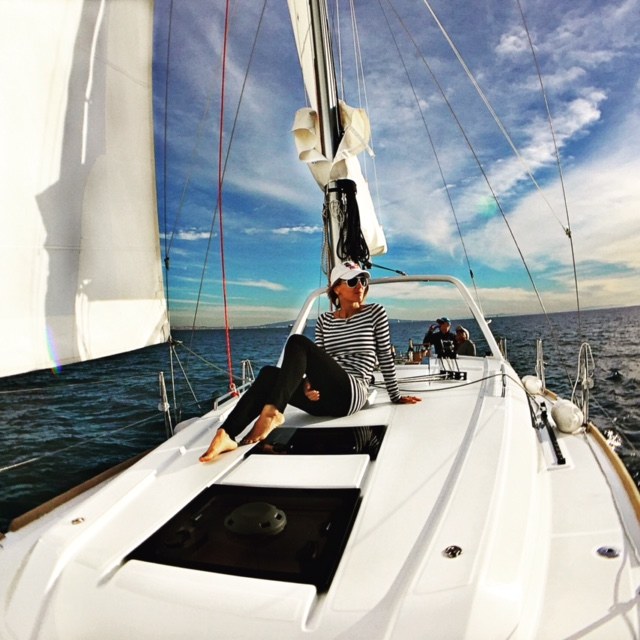This website uses marketing and tracking technologies. Opting out of this will opt you out of all cookies, except for those needed to run the website. Note that some products may not work as well without tracking cookies.
Opt Out of Cookies|
When it comes to cause and treatment of seasickness there are just as many personal opinions, as there are people on this planet. It's the elephant onboard no one wants to talk about, because “it's contagions” and “not fun”. There are 2 types of boaters: the ones that get seasick and the ones they don't. If you fall into the unlucky category, you have heard it all: “you will get used to it”, “don't drink”, “don't eat”, “look at the horizon”, “snap out of it”, “just don't think about it”...but you still get sick? I did not want to do another post about a bunch of natural remedies and ideas that might help. I believe understanding the problem is the first step to managing it. So what is seasickness? By definition: motion sickness happens when your brain receives conflicting messages about motion and your body’s position in space. The conflicting messages are delivered from your inner ear, your eyes (what you see), your skin receptors (what you feel), and muscle and joint sensors. The brain receives conflicting signals: while the eyes show a world that it is still, our body, and in particular the equilibrium sensors located in our ears, send signals of a moving environment. This discordance causes the mind to send to the whole body a general alarm signal, in order to stop all activities, in particular the most complex of all, the digestion process. Great! Sounds like a bunch of gebbrish, so what does it REALLY mean? To break it down: eyes, inner ear (hairs) and the brain are having a business dinner to discuss what you (human) are currently up to. The eyes and the inner ear are having a philosophical discussion. Eyes say you are standing still and not moving (because you are on a boat and the boat is moving, not you) the inner ear says you are moving, boat or not, you are moving in space and time, there are for, you ARE moving. The argument escalates into a fight, your brain gets a major migraine...and starts to loose it's mind, pun-intended. While the brain can't decide which side to take, it throws up all over the dinner table in hopes of shutting up the arguing parties. What have we learned? The seasickness starts off as a mental state (brain gets confusing signals) and it escalates to a physical condition (throwing up, nausea and fatigue). So logically, if we could somehow get our eyes and inner ear to agree, the seasickness would just go away? Well technically yes, but it's easier said then done. We, humans, are the main problem. We always think we know what's best for us...at first sight of seasickness most people close their eyes, lye down, focus on themselves or do nothing. They disregard any advice and shut down. This only makes matters worse, when what one should be doing is fully acknowledging and embracing the movement of their body, in space and time and connecting it to the eye sight. And here is where the personal opinion comes to play. My husband has never been seasick in his life, so his sympathy is very limited. He believes that if you are out on the water long and often enough, you would just “get used to it”. I'm on the other hand sympathizing with the mystery that seasickness is and I speak from experience. I'm lucky enough to have only gotten lightly seasick a few times, but I have not been “ocean storm and high seas tested” to truly know my limits. But every time I have felt “funny” I was able to “snap out of it” by standing up, forcing my body to balance on my feet and making an extra effort to show my mind I AM MOVING. I definitely think I have learned to manage my seasickness, but I don't think I will ever get “used to it” enough to say “I have crossed to the Lucky side”. So you can try to use the power of your mind to help you manage it, but if all fails...what about the good all Dramamine? I will spare you from reading a very long and complex medical explanation of how Dramamine, Bonine (which I would prefer) and other similar drugs work to help with the seasickness, so here is a short version. This drugs work on the principal of it's ability to block curtain actions of histamine, which is responsible for the transmission of information from the vestibular apparatus (the part of the middle ear that is involved in balance) to the emetic center in the medulla oblongata, which is a part of the brain involved in coordinating various reflexes (e.g., swallowing, vomiting). So it basically blocks your brain's ability to hear your eyes and your inner ear fighting.
But why is drowsiness a usual side effect? Histamine, acting via H1 receptors in the central nervous system, increases wakefulness. Therefore, antihistamines that block the binding of histamine to H1 receptors and which enter the central nervous system cause drowsiness. Sounds scary, well not so much. I'm personally really against taking any kind of drugs, but if you have been seasick before you know that feeling is just one of the worst things ever, so if you take these drugs a few times a year to be able to enjoy your time on a boat, it's probably worth it. The trick I have learned in my whale watching school is to take Bonine (Not Drammamine..it's too drowsy) the night before going out right before bed. And if you are super sensitive, take one more with breakfast. This will assure that the drug is well within your system and you will not be nearly as drowsy on the boat. It is not what the directions on the package say, but it works for many people I know. But obviously, make your own educated decisions. I hope this helps some of you to understand the Miss “Misery” a little bit better and not fight the urge to “Move freely about the cabin”:-) Good luck and stay seasick FREE out there! V
4 Comments
2/18/2016 03:45:01 pm
Easily, the article is actually the best topic on this registry related issue. I fit in with your conclusions and will eagerly look forward to your next updates. Just saying thanks will not just be sufficient, for the fantasti c lucidity in your writing. I will instantly grab your rss feed to stay informed of any updates.
Reply
3/18/2016 11:00:38 pm
I am really thankful to read your post. I discovered a bunches of approaches after seeing your blogs. Great work.
Reply
Your comment will be posted after it is approved.
Leave a Reply. |
Victoria Chalaya Follow
|







 RSS Feed
RSS Feed